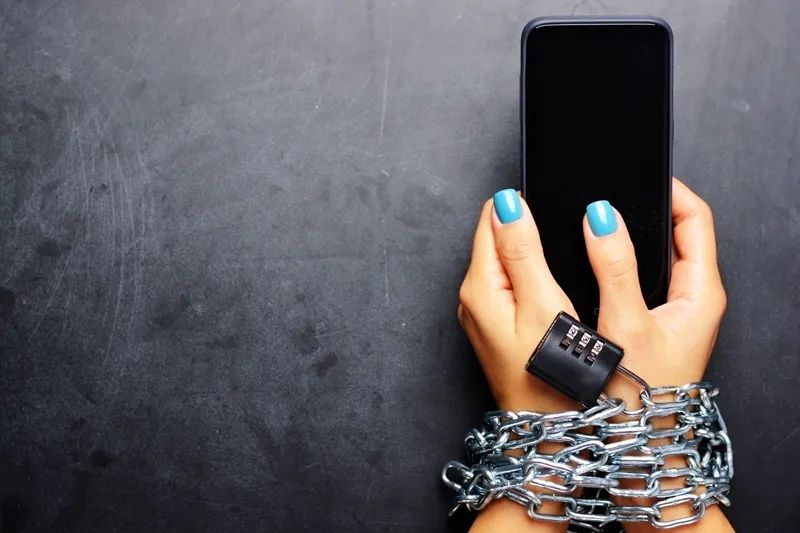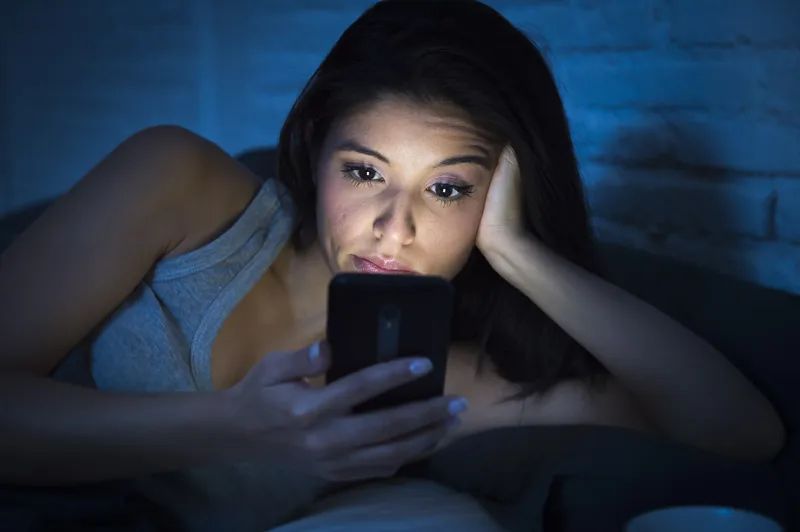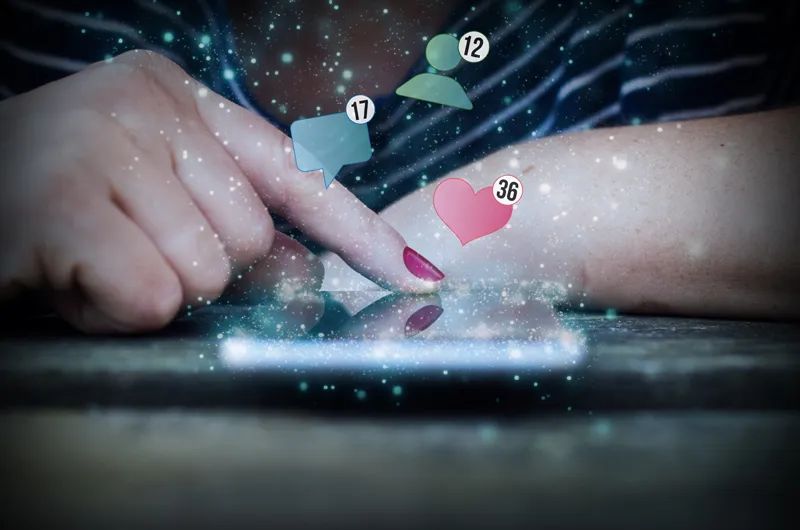
Too much time swiping, liking, clicking and snapping?
It might be time to break up with your Smartphone
How often do you pick up your phone and unlock it for one reason or another? The answer might surprise you. Apple, the maker of the iPhone, conducted a study recently that shed some light on just how attached we are to our phones. It turns out, iPhone users pick up and unlock their phones, on average, 80 times a day. A similar study showed Android users swipe to unlock about 110 times a day.
While smartphone addiction isn’t officially recognized by psychiatrists, there’s little doubt the device disrupts lives, causing physical harm with the risk of accidents, impacting a person’s capacity to work and negatively affecting their interpersonal relationships. All of which are signs of addiction.
So, how can using your phone be addicting? It might be the involuntary reaction we get when we hear that little beep telling us we have a notification waiting. Research shows with every ding, we experience a surge in dopamine in the brain. That “feel-good” chemical release is linked to addiction. Too many notifications create an environment of constant interruption and distraction. Add in a little boredom or loneliness and you have the perfect environment for addiction.

SET SOME BOUNDARIES
To really rein in your smartphone use, why not track how you’re using it? iPhones have a feature called Screen Time that lets you know how much time you’re spending and what apps are monopolizing your time. Apps such as Quality Time provide the same features for Android phones.
Find out what triggers you to get lost in your phone. Are you bored? Are you lonely? Are you anxious? Find alternative ways of soothing those feelings. Stand up for a stretch, take a few deep breaths, or think back to your most recent vacation or family outing.
SILENCE THE NOTIFICATIONS
Apps are programmed using algorithms designed to get you to engage with them as often as possible. It might seem handy but think of the interruptions to your day. Even if you resist the urge to check, the little noise stopped you in your productive tracks. If you can’t turn off all notifications, limit them to only the most critical applications.

SCRAMBLE YOUR ICONS
If you find yourself mindlessly picking up your phone and getting lost in checking email or social media, try scrambling your icons. Move your most triggering apps to the last screen of your phone. It gives you a split second to reconsider whether you want to go there. You might also consider which apps you no longer use and remove them. It’s kind of like clearing off a virtual desk and keeping only what adds value to your life.
BEDROOM = NO PHONE ZONE
Aside from the many benefits of a good night’s rest, sleep deprivation and poor-quality sleep can lead to an increased risk of chronic diseases such as diabetes, stroke, high blood pressure, heart disease, obesity and poor mental health. Studies show the blue light that’s emitted from our cell phones disrupts the melatonin levels in the brain. Melatonin sends the signal to your body that it’s time to sleep. Even if you don’t have trouble falling asleep after a screen session, chances are you’re not getting the quality sleep you need. If you use your phone as an alarm, consider getting an old-fashioned alarm clock, one that doesn’t emit light. Ease into your morning routine without checking your phone first thing.
GO FACE-TO-FACE
While it may seem that smartphones create and maintain connections with those we love, there’s nothing better than face-to-face time. If you have trouble not checking your phone when you’re with someone, try silencing it or setting your phone to “do not disturb.”
Memories are made not virtually but in real life. So, instead of browsing a friend’s social media feed to see what she’s up to, ask her over for coffee or give her a ring.
Is your smartphone tied to your work? Studies have shown that while email and other forms of interoffice communication are helpful, face-to-face meetings (phones face down and silenced) are more productive and more efficient.
TAKE SMALL STEPS
You’re not alone if you’ve asked yourself, “What did we do before cell phones?” They are designed to make our lives less stressful and more convenient. If you find yourself a little too attached, try to make a few gradual changes instead of adding to the stress by going cold turkey. Trust your instincts, and you’ll know when you need to make changes.

DO YOU NEED A SMARTPHONE DETOX?
Take our quiz
Do you keep your phone within arm’s reach at all times?
Have you ever texted while driving?
Ever picked up your phone to check the time, got distracted by notifications and then forgot the time?
Do you interrupt face-to-face conversations to check your phone?
Do you use your phone during mealtimes?
Do you experience wrist or neck pain, eye strain or headaches from screen use?
Do you check your work email outside of the workday, on weekends or on vacation?
Do you use your phone within an hour of bedtime?
Is your smartphone your alarm clock?
Is checking your phone the first thing you do in the morning?
If you answered yes to six or more of these questions, it might be time for a smartphone detox.
NEVER TEXT OR TALK WHILE DRIVING
Distracted driving kills more than 3,000 people and injures more than 400,000 people every year.












